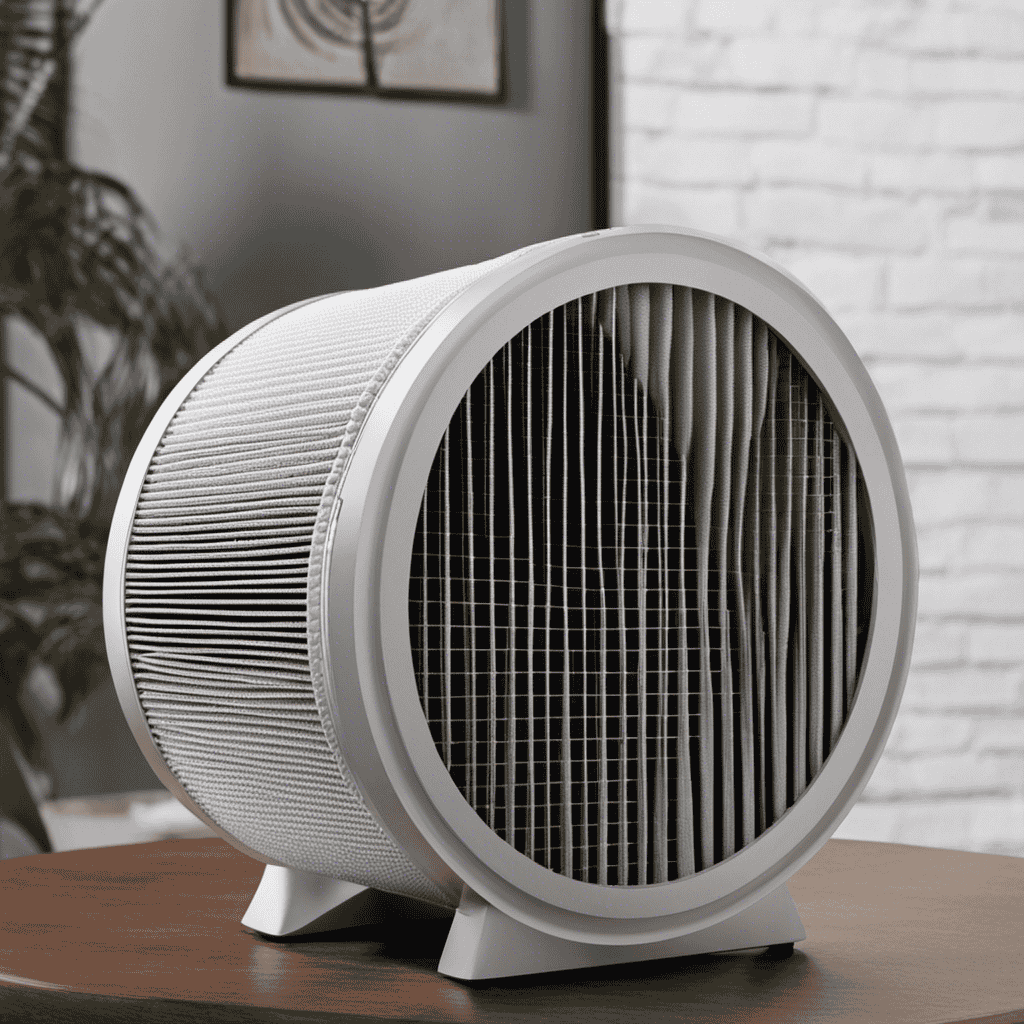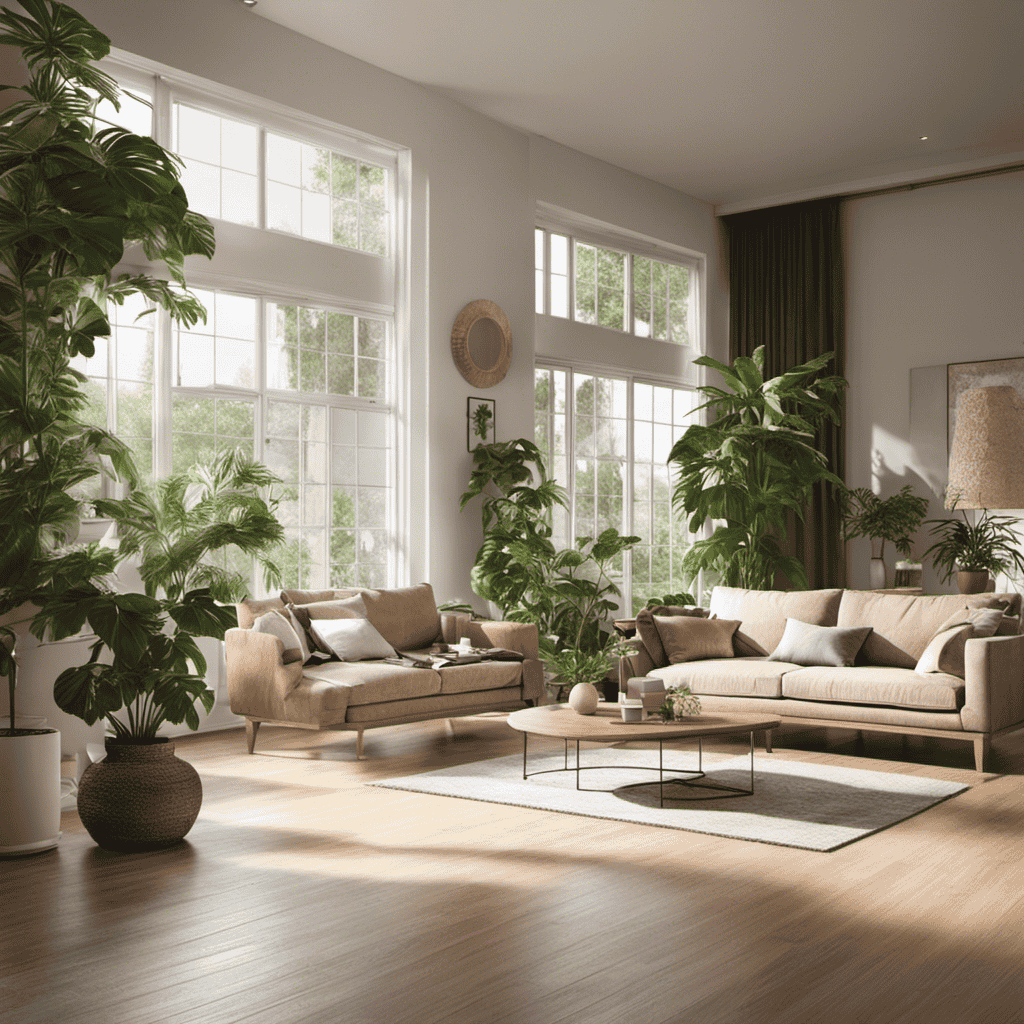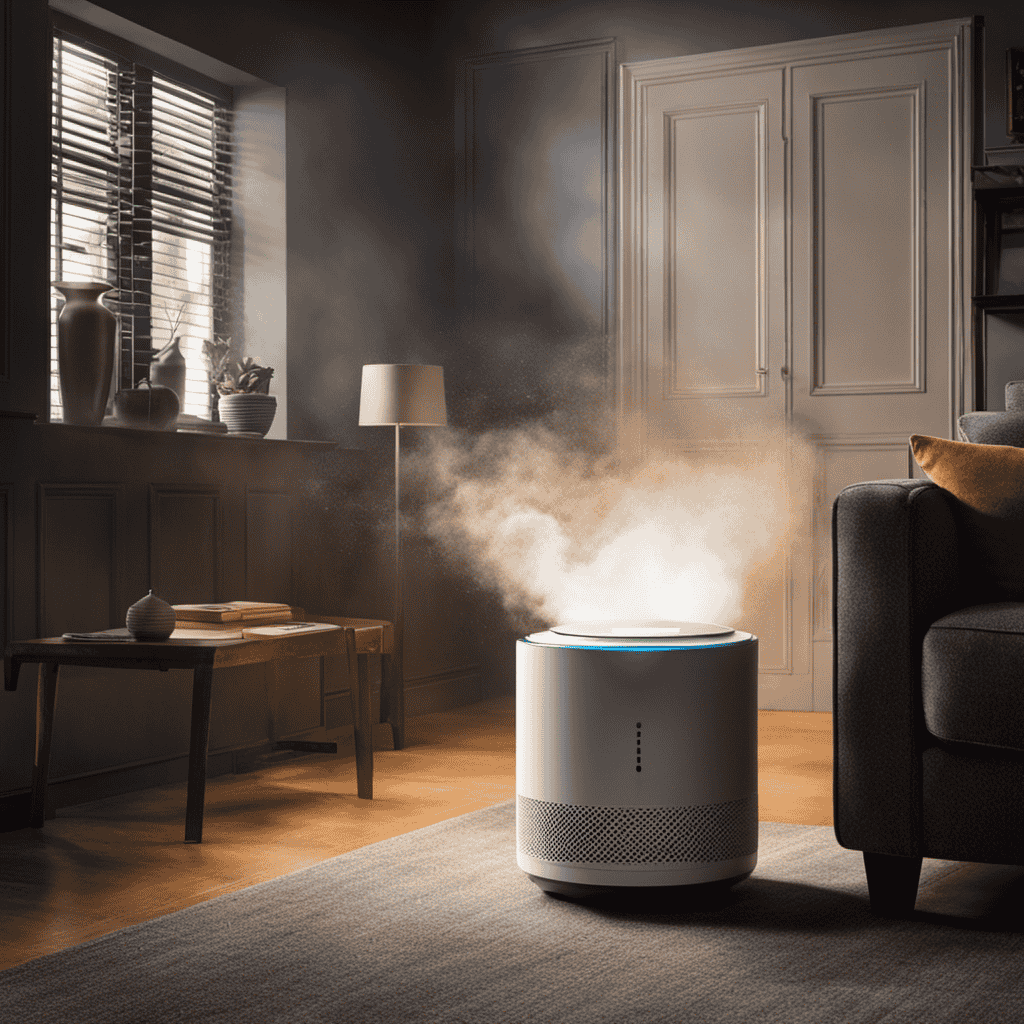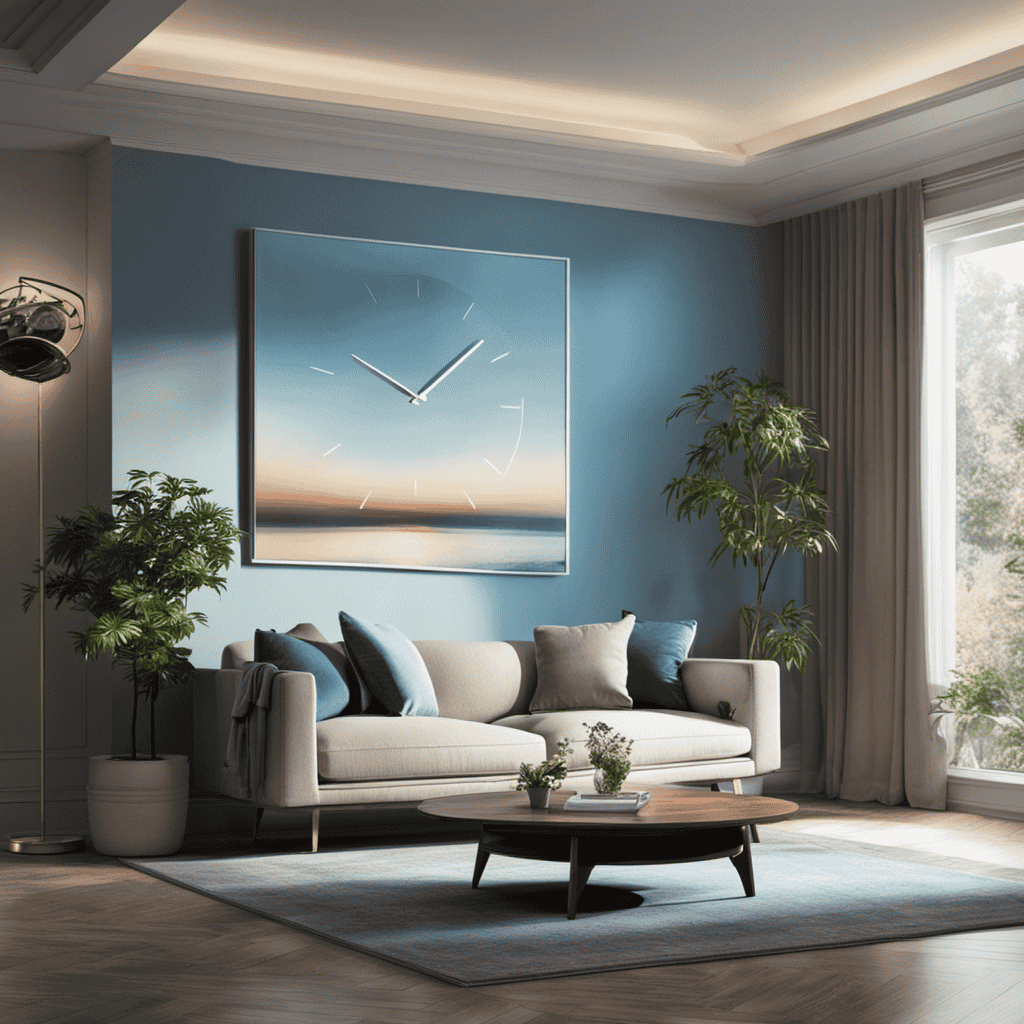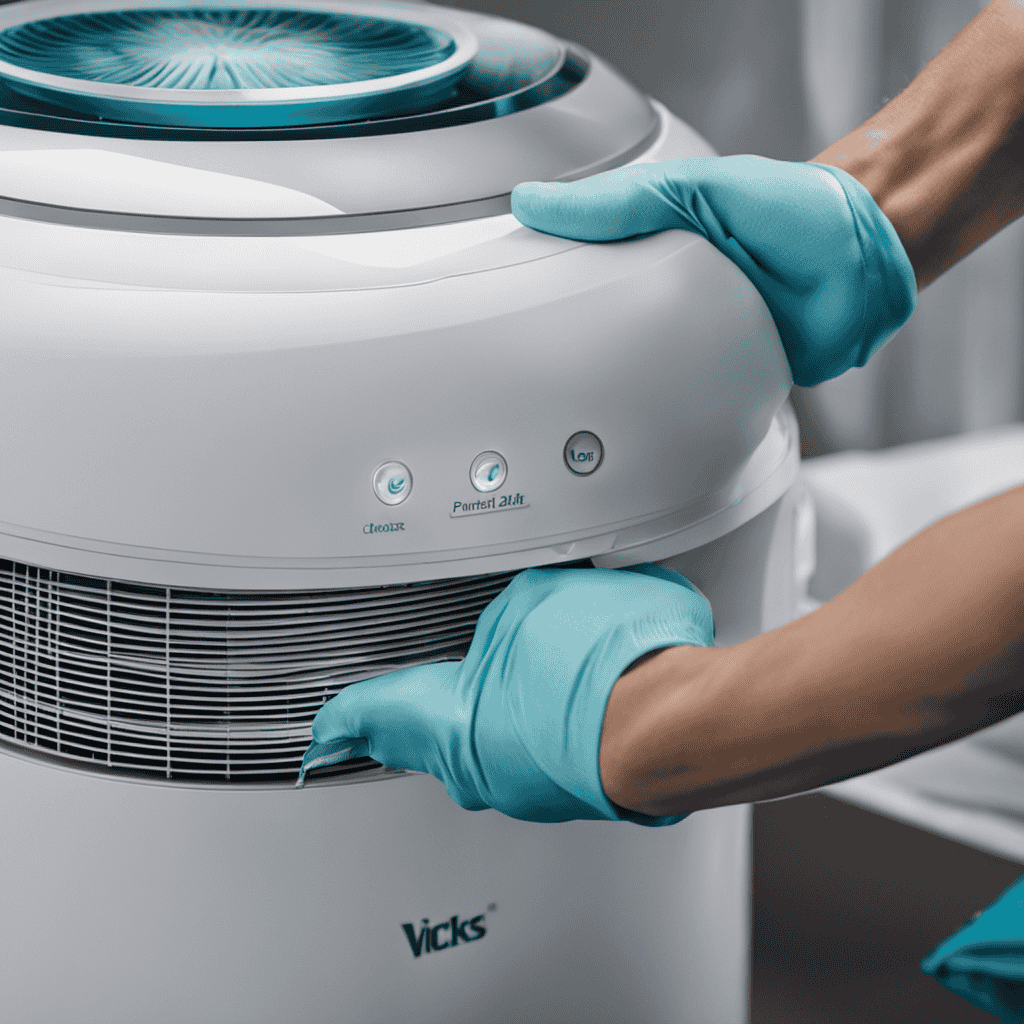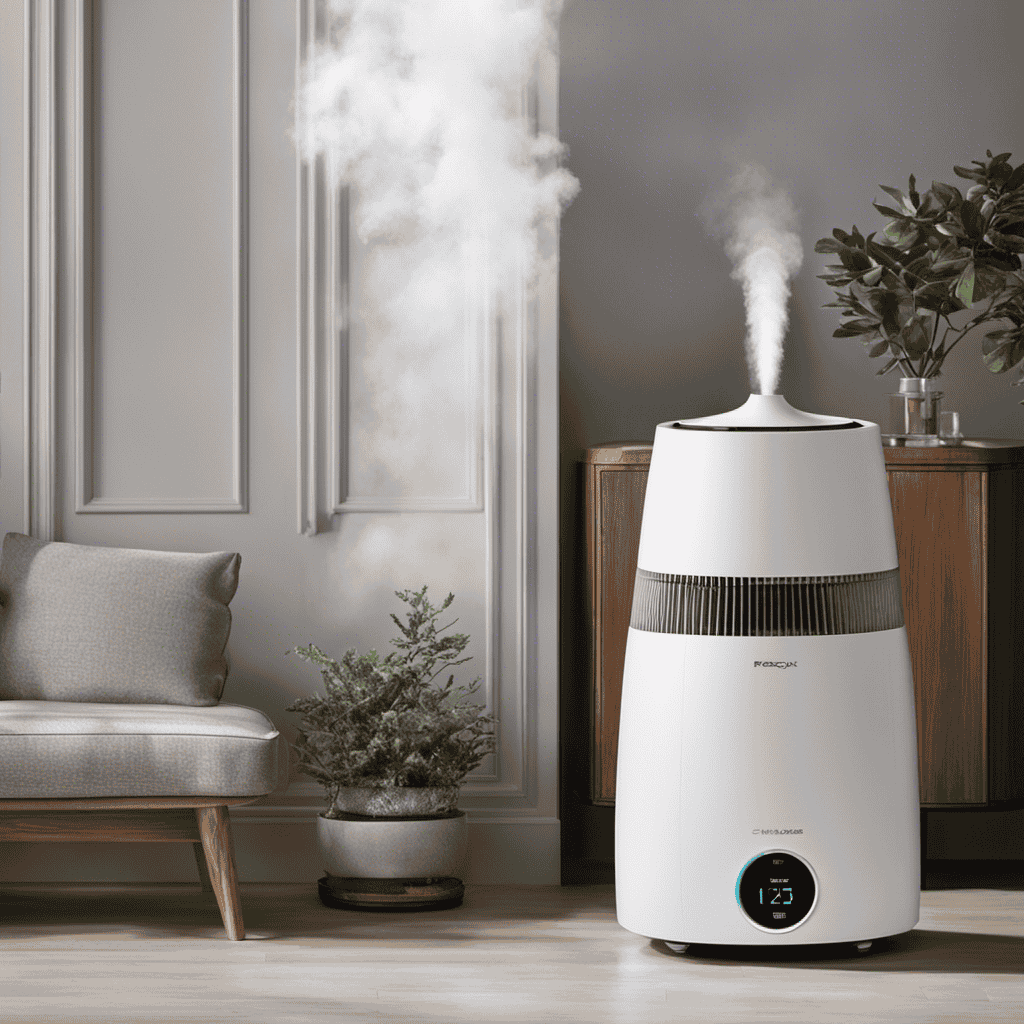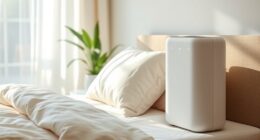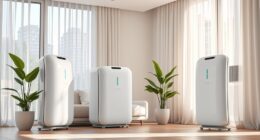I have a secret to share with you: the lifespan of HEPA filters in air purifiers is shorter than most people realize. However, there’s no need to worry because I am here to help you navigate through it all.
In this article, we’ll explore the factors that affect the lifespan of HEPA filters, the average hours you can expect them to last, and the telltale signs that it’s time for a replacement.
Plus, I’ll share some strategies to help extend the lifespan of these essential filters.
Let’s dive in and keep your air clean and fresh!
Key Takeaways
- The average lifespan of Hepa filters in air purifiers is around two to three years.
- Regular maintenance, such as vacuuming, scrubbing, and rinsing the filters, can help extend their lifespan.
- Signs that indicate it’s time to replace Hepa filters include decreased airflow, increased allergy symptoms, visible dirt or debris on filters, and foul odor.
- The lifespan of Hepa filters varies across different air purifier brands, so it’s important to consider this when purchasing an air purifier.
Factors Affecting the Lifespan of Hepa Filters
If you want to know how long HEPA filters in an air purifier last, there are several factors that affect their lifespan.
The first factor is the quality of the filter itself. High-quality filters are designed to last longer and provide better air purification.
Another factor is the amount of pollutants present in the air. If the air is heavily polluted, the filter will have to work harder and may need to be replaced more frequently.
Regular filter maintenance is also crucial for prolonging the lifespan of HEPA filters. Cleaning or replacing the filter as recommended by the manufacturer ensures that it continues to function at its highest efficiency.
The benefits of regular filter maintenance include improved air quality and increased longevity of the filter.
The Average Lifespan of Hepa Filters in Air Purifiers
The average lifespan of Hepa filters in air purifiers is usually around two to three years. Hepa filters offer several benefits when used in air purifiers.
They are highly effective at trapping microscopic particles such as dust, pollen, pet dander, and mold spores, which can improve indoor air quality and reduce allergy symptoms.
When choosing the right Hepa filter for your air purifier, it is important to consider the size of your room and the specific pollutants you want to remove. Look for filters with a high efficiency rating and a large surface area for optimal performance. It is also recommended to check the manufacturer’s instructions for the recommended filter replacement schedule.
Understanding the average lifespan of Hepa filters is crucial, as there are signs that indicate it’s time to replace them, which will be discussed in the next section.
Signs That Indicate It’s Time to Replace Hepa Filters
To determine when you should replace your Hepa filters, pay attention to any decrease in air flow or a noticeable increase in allergy symptoms. These are warning signs that your filters may be getting clogged and are no longer effectively removing allergens from the air. Regular maintenance is crucial to ensure the optimal performance of your air purifier. Here are some maintenance tips to keep in mind:
| Warning Signs | Maintenance Tips |
|---|---|
| Decreased air flow | Replace filters |
| Increase in allergy symptoms | Clean or replace filters |
| Visible dirt or debris on filters | Vacuum or wash filters |
| Foul odor | Replace filters and clean purifier |
| Manufacturer’s recommendation | Follow the suggested replacement schedule |
Strategies to Extend the Lifespan of Hepa Filters
Regularly cleaning and maintaining your Hepa filters can help them last longer and continue effectively removing allergens from the air. Here are some strategies to clean hepa filters and the benefits of regular maintenance:
- Vacuum the filters regularly to remove dust and debris.
- Use a soft brush to gently scrub the filters and remove any stubborn particles.
- Rinse the filters with water to remove any remaining dirt.
- Allow the filters to dry completely before reinstalling them.
- Consider using a filter cleaning solution to deep clean the filters.
Regular maintenance of Hepa filters not only extends their lifespan but also ensures optimal performance. By keeping the filters clean, you can maximize their ability to capture and remove airborne allergens, such as pollen, dust mites, and pet dander. This helps improve indoor air quality and reduces the risk of allergic reactions.
Now, let’s move on to frequently asked questions about hepa filter lifespan.
Frequently Asked Questions About Hepa Filter Lifespan
Have you ever wondered how long Hepa filters typically remain effective in removing allergens from the air? Many people have misconceptions about the lifespan of Hepa filters, thinking they last indefinitely. However, the effectiveness of Hepa filters gradually decreases over time due to the accumulation of particles and pollutants. Different air purifier brands have varying lifespans for their Hepa filters. To provide a comparison, here is a table showing the estimated lifespan of Hepa filters in popular air purifier brands:
| Brand | Estimated Lifespan (hours) |
|---|---|
| Brand A | 3000 |
| Brand B | 5000 |
| Brand C | 8000 |
| Brand D | 10000 |
| Brand E | 15000 |
As you can see, there is a significant difference in the lifespan of Hepa filters across different brands. It is important to consider the lifespan of the filter when purchasing an air purifier to ensure its long-term effectiveness in removing allergens from the air.
Conclusion
In conclusion, it’s essential to be mindful of the lifespan of Hepa filters in air purifiers. By understanding the factors that affect their longevity and recognizing the signs of replacement, we can ensure optimal air purification.
Implementing strategies to extend their lifespan can also help us save time and money.
Let’s cherish these little heroes that silently work to cleanse the air we breathe, providing us with a fresh and invigorating atmosphere for years to come.
